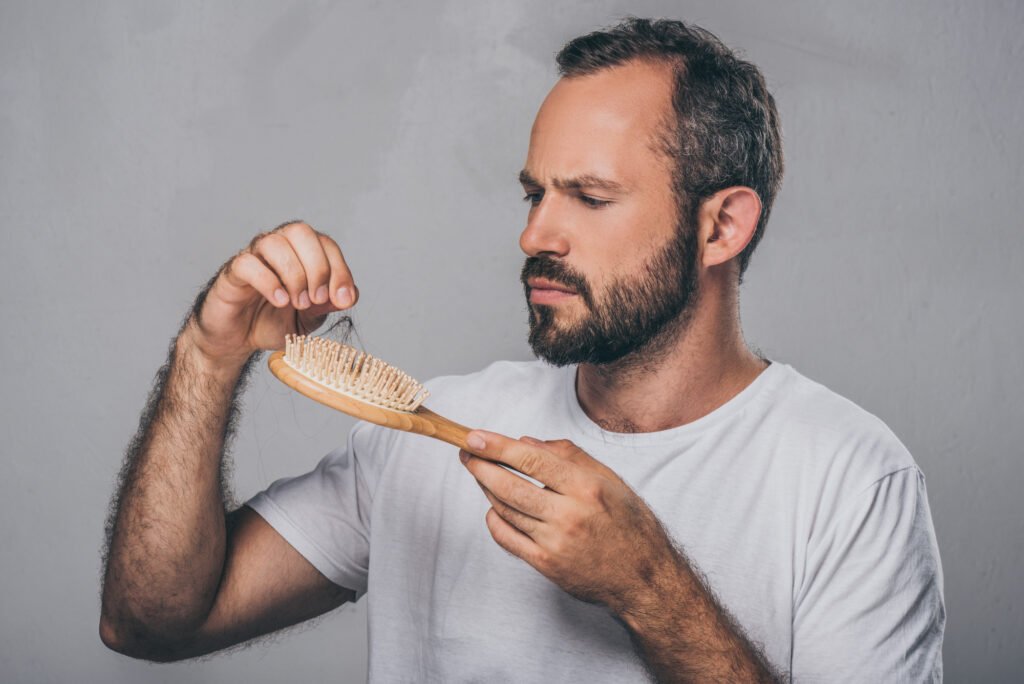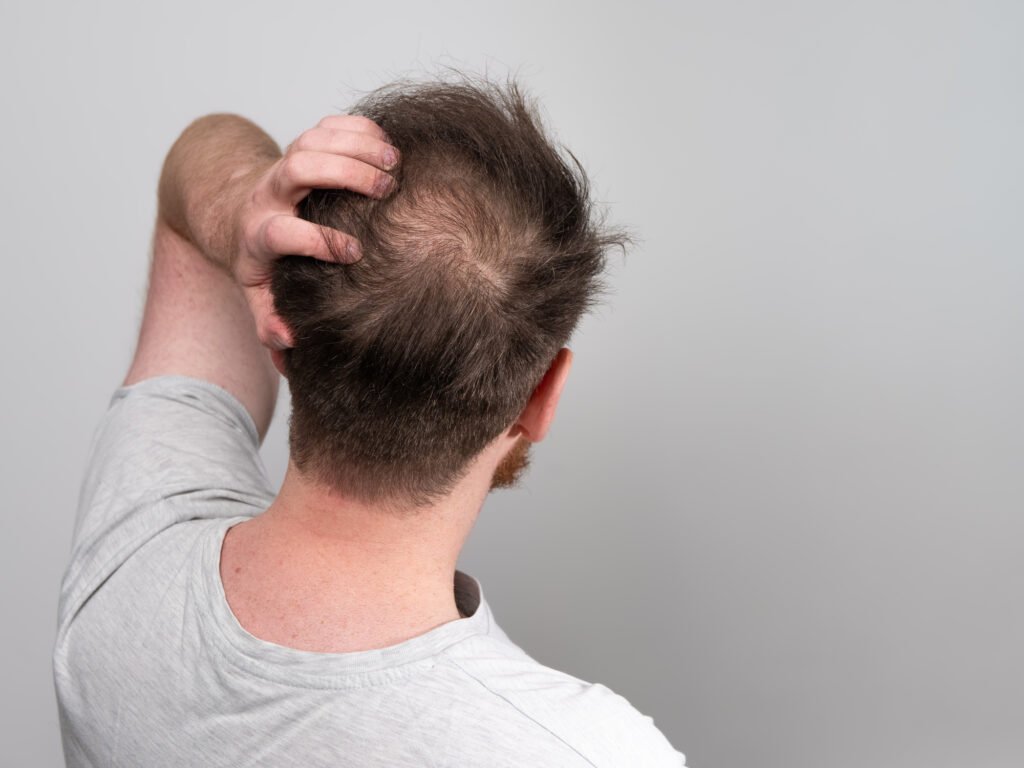
Gentlemen, it’s time for a serious conversation about age-related hair problems. There’s no shame in it—aging is a natural process that inevitably brings about changes in your body. Among these transformations, hair loss, thinning, or graying often cause the most concern.
But it’s not merely about aesthetics or vanity. Understanding the changes your body undergoes as it ages, including the possibility of needing a hair transplant, and learning how to manage them is crucial in maintaining your best appearance.
Age-related hair problems are not just an inevitable consequence of aging; they can also indicate health issues. With the right knowledge and tools, you can address these concerns more effectively.
Understanding age-related hair problems
Understanding the science behind age-related hair problems is key to addressing them effectively. Hair loss typically stems from changes in the hair growth cycle, which might decelerate as you age, leading to thinner, shorter, or fewer hairs. Graying hair, on the other hand, results from your body reducing the production of melanin, the pigment responsible for hair color.
This complex interplay of age and hair health isn’t just theoretical; it’s backed by empirical evidence. A PubMed study found a direct correlation between age and male pattern hair loss (MPHL) among men. Specifically, hair loss prevalence escalated from 16% in men aged 18-29 to 53% in those aged 40-49.
Yet, age is not the only player here. Factors like diet, stress, and genetics can significantly influence these processes. You might be genetically predisposed to male pattern baldness if it runs in your family. Furthermore, poor nutrition or elevated stress levels can worsen hair thinning or graying.
A comprehensive understanding of these factors is instrumental in devising effective prevention and management strategies.
Preventing age-related hair problems
While you can’t halt the aging process entirely, you can mitigate its effects on your hair. A balanced diet, rich in iron, zinc, and vitamins A, B, C, and E, is vital in maintaining hair health.
Additionally, here are some simple yet effective tips to prevent age-related hair problems:
- Prioritize nutrient-rich foods that promote healthy hair growth, like salmon, spinach, and avocados.
- Incorporate stress reduction techniques, such as mindfulness practices or hobbies, into your daily routine.
- Stay hydrated to nourish your hair from the inside out.
- Regular exercise can increase blood flow to your scalp, promoting healthier hair.
- Limit heat and chemical styling to reduce potential hair damage.
- Regularly massage your scalp to stimulate hair follicles.
Lastly, your lifestyle choices significantly impact hair health. Adequate sleep is vital as your body repairs and rejuvenates itself, including your hair follicles, during this time. Avoiding harmful habits like smoking and excessive drinking can further preserve your hair’s health, as these can lead to hair damage and loss.
Regular trims help maintain your hair’s health and prevent split ends. And remember to protect your hair from the sun’s harmful UV rays to avoid dryness and breakage.
Treatment options
The positive news is that various treatments are available for age-related hair problems. Options range from topical solutions like minoxidil (Rogaine) to oral medications like finasteride (Propecia), which can slow down hair loss and even stimulate new growth in some men.
For graying hair, color-restoring products and treatments are available. If you’re open to the idea, embracing the gray can be empowering.
A professional stylist can help you find a style that enhances your silver locks. Nonetheless, it’s critical to consult a healthcare provider or dermatologist before starting any new treatment to ensure it suits you.

The psychological impact of hair changes
Alterations in hair, especially hair loss, can significantly affect one’s self-esteem, often triggering feelings of insecurity or discomfort. A systematic review disclosed that around 25% of males afflicted with androgenetic alopecia regard their hair loss as profoundly distressing, while a significant 65% manifest levels of emotional discomfort ranging from moderate to substantial.
Acknowledging these feelings is crucial—they’re a normal response to changes in your appearance.
Some men embrace their new appearance, viewing it as a symbol of maturity and wisdom. Others may seek treatments to preserve their hair. The key is finding a route that boosts your confidence and helps you feel comfortable in your own skin.
Conclusion
As men age, their hair undergoes changes—it’s a universal truth. However, with knowledge about the causes of age-related hair problems, preventive strategies rooted in a healthy lifestyle, an open mind toward holistic hair care approaches, and an understanding of the psychological impact of these changes, you can navigate this aspect of aging confidently and assertively. After all, the journey isn’t merely about preserving your hair—it’s about embracing the man you’re becoming, regardless of whether or not you have a full head of hair.



